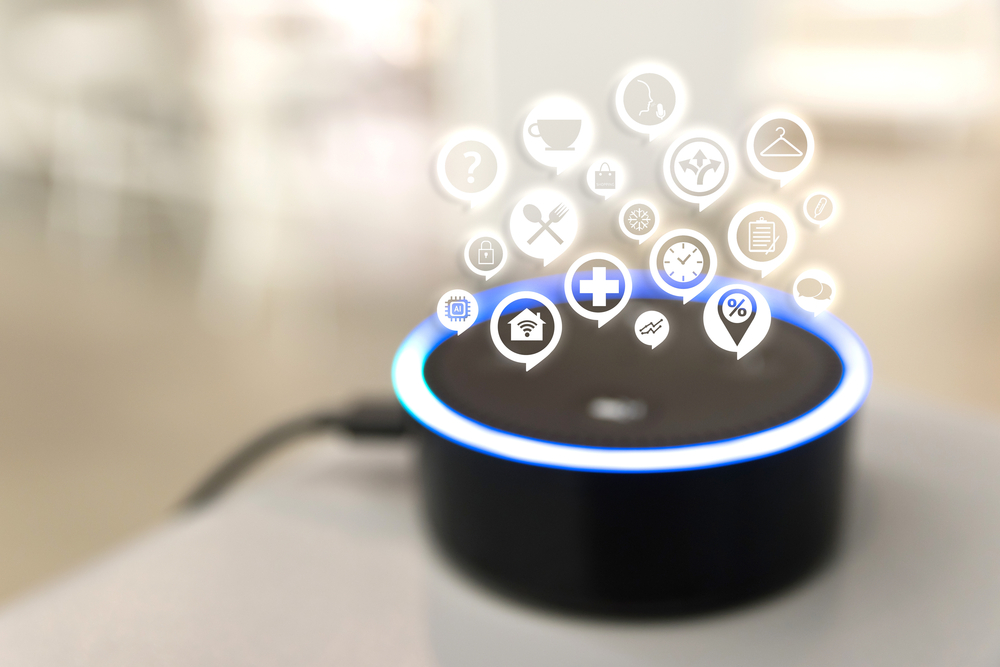



Get new exclusive access to healthcare business reports & breaking news




More than a 100 patients at Cedars-Sinai can now use an Alexa-powered platform known as Aiva to interact with nurses and caregivers. This approval follows the implementation of a pilot project that also allows them to control their entertainment hands-free.
In a blog post, Cedars-Sinai explained that under the smart hospital pilot project, patient rooms are fitted with Amazon Echos so that patients can tell the device what they need. Aiva is said to be the world’s first patient-centered voice assistant platform for hospitals.
Sumeet Bhatia, the founder and Chief Executive Officer of Aiva said that, together with Cedars-Sinai, they were “giving patients more entertainment options, more control over their environment and closer communication with their care team”.
“For example, patients can turn their TV off and on and change channels by giving verbal commands like, ‘Alexa, change the channel to ESPN.’ A patient who needs assistance getting out of bed might say, ‘Alexa, tell my nurse I need to get up to use the restroom,’” Cedars-Sinai said.
The Los Angeles hospital said a patient’s request is routed to the mobile phone of the appropriate caregiver, whether a nurse, clinical partner, manager or administrator. A pain medicine request, for example, is routed to a registered nurse, while a bathroom request would be routed to a clinical partner.
What happens when there is no response to a patient’s request? Cedars-Sinai said the issue will be escalated and the Aiva platform will send it up the chain of command.
Officials at the hospital say the new system is quite convenient for both the patient and the caregiver. “Whereas previously nurses were frequently asked to help with the in-room television, Alexa does that job for us, allowing nurses to focus on providing the highest level of patient care,” Golda Morales, an assistant nurse manager of general surgery, was quoted saying.
Cedars-Sinai believes patient needs are changing and the hospital has to be responsive. Particularly, the hospital says, patients have become familiar with devices like Amazon Echo in their homes and a platform like Aiva could improve patient outcomes.
“Patients young and old are now used to voice-activated devices in their homes. Since it’s familiar to them, it helps enhance their hospital experience. In the hospital, patients have little to distract them from pain or loneliness,” Peachy Hain, Cedars-Sinai’s executive director of medical and surgical services, who has been credited with being one of the driving forces behind bringing Alexa to patient rooms, said.
Abdominal surgery patient, Adrienne Edwards, who was one of the first patients to use the platform, was quoted saying “It rocks. I was lonely in the hospital and I said, ‘Alexa, would you be my friend?’ The device responded, ‘Of course we could be friends. You seem very nice.'”
Aiva was part of Cedars-Sinai’s accelerator in 2017, and through the accelerator, the hospital was one of the company’s first investors. Aiva has also received funding from the Google Assistant Investment Program and Amazon’s Alexa Fund. Aiva, which can be used in senior homes, also works with voice assistants such as Google Home.
In the past, Cedars-Sinai introduced the MyChart Bedside app, which is meant to modernize patient communication. The hospital has provided more than 250 tablets equipped with the MyChart bedside app, thus allowing patients to use the app to check their medical record information, including lab results, as well as the names and photos of their care team.
Hospitals are increasingly trying out voice assistants. One that is being tested in Boston Children’s intensive care unit allows nurses to ask for administrative information such as, who is the charge nurse on duty or how many beds are available in a ward. The hospital also piloted voice-enabled versions of the checklist used to validate organs before transplant, with prompts to help reduce error. KidsMD, a program powered by Alexa, is meant to be used by parents at home to help them decide whether their children need to see a doctor, it was reported.
Amazon-powered devices are also being used in Boston’s Beth Israel Deaconess Medical Center and Commonwealth Care Alliance, Northwell Health in New York, and Libertana Home Health in Los Angeles.
Amazon has entered the healthcare sector with a bang and has shown that it is here to stay.
Already, the company is using its cloud computing platform, Amazon Web Services (AWS) to go head-to-head with Microsoft and Google in pitching to healthcare customers. In 2017, AWS had invested in 10 startups. By August 2018, nine AWS healthcare startups presented at HIMSS.
Amazon is betting heavily on AI and Alexa driven ecosystems.